China, Russia threaten NATO: Putin’s crony calls for ‘disappearance’ of Ukraine, alliance, while Beijing warns Western military group ‘provokes confrontation’
China and Russia have both threatened NATO with provoking a “confrontation” over the bloc’s claims that Xi Jinping’s nation is playing a key role in Moscow’s invasion of Ukraine.
NATO leaders said in a statement at their summit in Washington on Wednesday that China has become “a decisive pillar of support in Russia’s war against Ukraine,” calling Beijing’s “so-called ‘no limits’ partnership” and “large-scale support for Russia’s defense industry” “deeply troubling.”
A spokesman for Beijing’s mission to the European Union responded: ‘NATO must stop inflating the so-called Chinese threat and provoking confrontation and rivalry. It must do more to contribute to peace and stability in the world.’
“It is known to everyone that China is not the creator of the crisis in Ukraine. China’s position on Ukraine is open and honest,” they added.
Former Russian President Dmitry Medvedev weighed in on the debate, criticizing the NATO summit’s pledge to eventually grant Ukraine membership, saying Russia should work toward the “disappearance” of both Ukraine and the military alliance.
China and Russia have both threatened NATO with provoking “confrontations” over the bloc’s claims that Xi Jinping’s nation is playing a key role in Moscow’s invasion of Ukraine (file image)
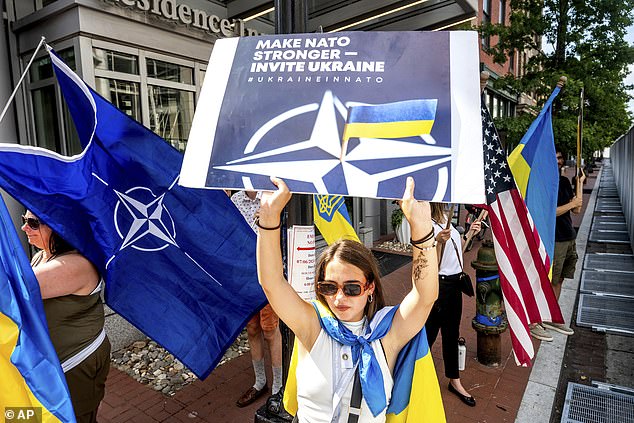
Ukrainian refugee Mariia Hlyten holds a sign outside the NATO summit in Washington
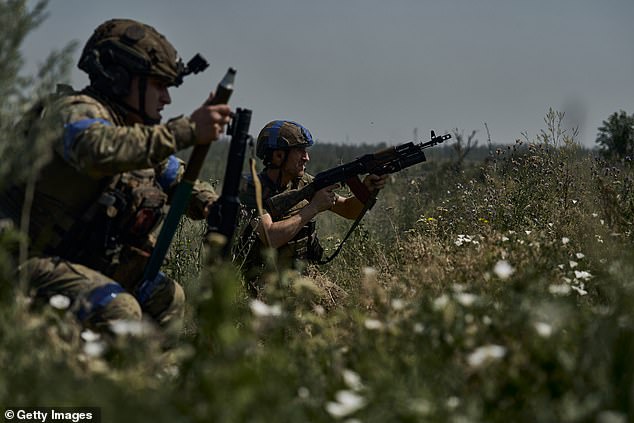
Ukrainian infantry fires on Russian positions on the zero line of the front in prepared trenches 100 meters from the Russian trenches on July 5, 2025 in the direction of the Toretsk region
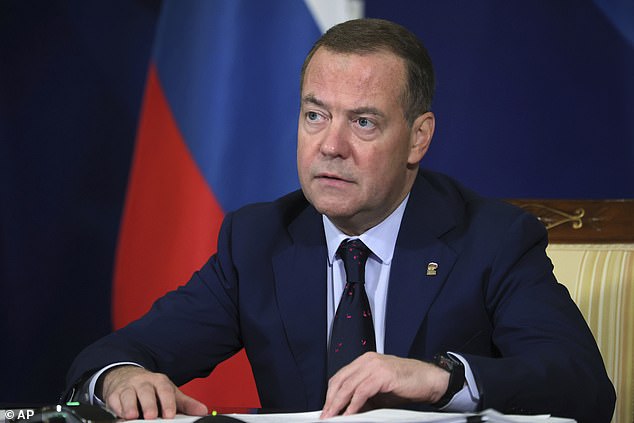
Former Russian President Dmitry Medvedev (pictured) has rejected a NATO summit promise to eventually grant Ukraine membership
In a social media post in English, Medvedev quoted NATO’s statement made at this week’s summit in Washington: “We will continue to support (Ukraine) on the irreversible path to full Euro-Atlantic integration, including NATO membership.”
He continued, in Russian: “The conclusion is clear. We must do everything to ensure that Ukraine’s ‘irreversible path’ to NATO ends with either the disappearance of Ukraine or the disappearance of NATO. Or better yet – the disappearance of both.”
The Russian state supports Medvedev’s response. Kremlin spokesman Dmitry Peskov told Russian news agencies today that the country was planning “response measures” to contain the “very serious threat” from NATO.
He added that NATO is now “fully engaged in the conflict over Ukraine.”
Medvedev, seen as a pro-Western modernist during his presidency from 2008 to 2012, has reinvented himself as an arch-hawk since the start of the war in Ukraine, in what Moscow calls a “special military operation.”
He has repeatedly warned the US and its allies that arming Kiev could lead to a “nuclear apocalypse.”
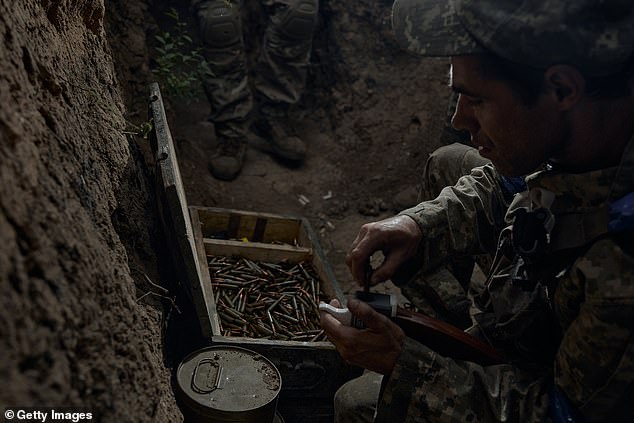
Ukrainian infantry on the zero line of the front in prepared trenches 100 meters from the Russian trenches on July 5, 2025
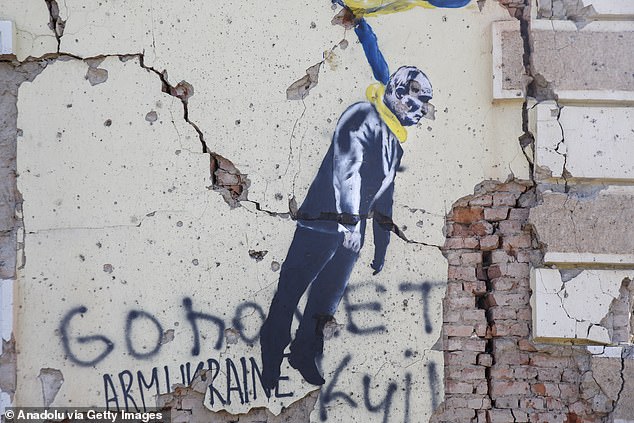
A mural depicting Russian President Vladimir Putin in Kostiantynivka, Ukraine on June 30, 2024
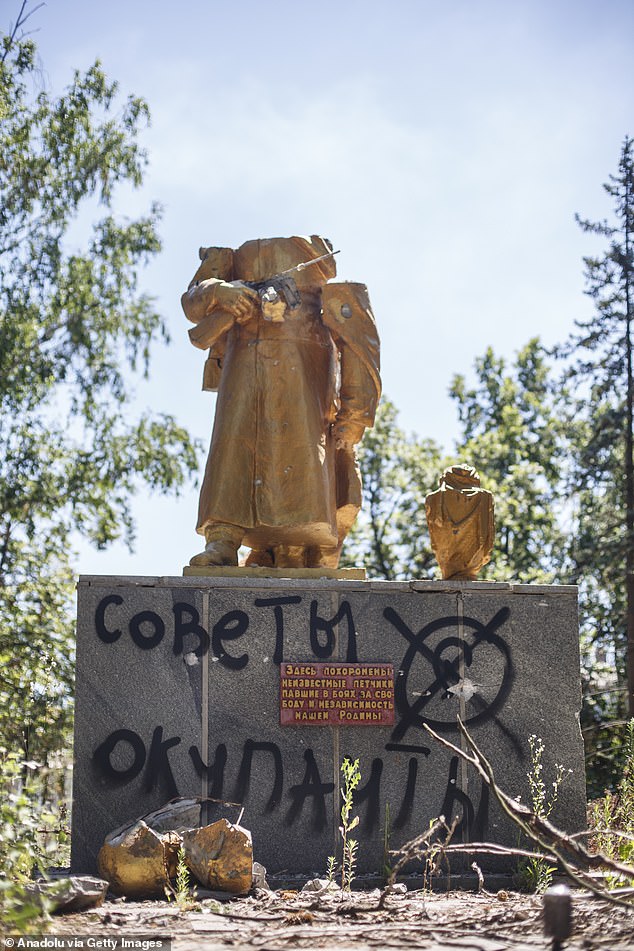
A destroyed statue in Chasiv Yar, Ukraine on July 6, 2024
Any decision on the use of Russian nuclear weapons would be up to President Vladimir Putin. But diplomats say the views of Medvedev, who is deputy chairman of Russia’s Security Council, are indicative of hawkish thinking at the top of the Kremlin, which has portrayed the war as an existential struggle with the West.
China has refused to condemn the Russian invasion and last year published a document calling for a “political solution” to the conflict, which Western countries say would allow Russia to retain much of the territory it has captured in Ukraine.
Strategic cooperation between China and Russia has deepened since the invasion.
Beijing presents itself as a neutral party in the war and says it does not send lethal aid to either side, unlike the United States and other Western countries.
However, it has provided a vital lifeline for Russia’s isolated economy, as trade has flourished since the beginning of the conflict.
But that economic partnership has come under close scrutiny from the West in recent months, as Washington has vowed to crack down on the financial institutions that facilitate Moscow’s war efforts.
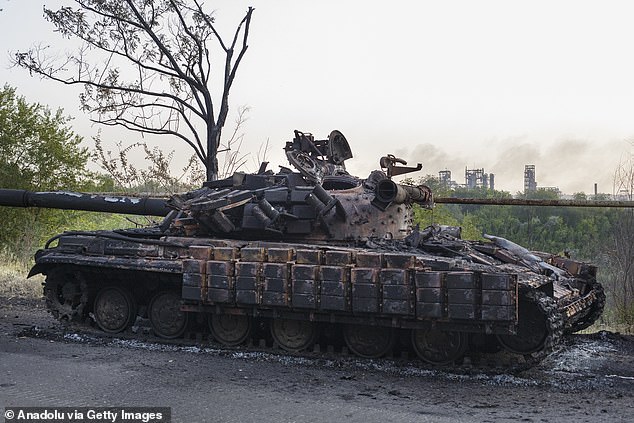
A view of a destroyed tank in New York City (Niu-York), as Torecki has been one of the quietest parts of the front line so far
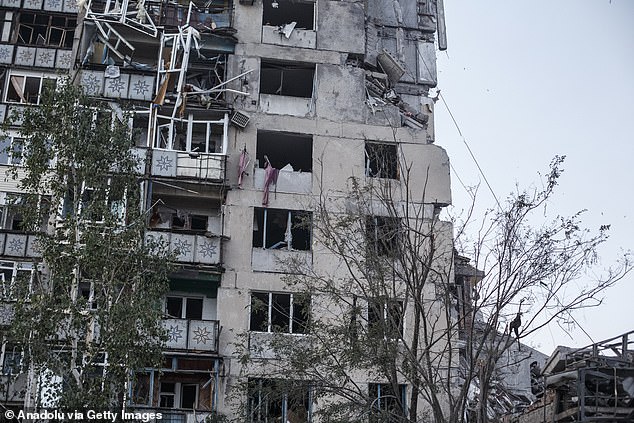
A view of a collapsed building in New York City (Niu-York) as Torecki was one of the quietest parts of the front line so far, as the Russians began shelling the area
The United States and Europe also accuse Beijing of selling parts and equipment needed to keep Moscow’s military production running.
US Secretary of State Antony Blinken said in April that the shipments included “machine tools, semiconductors and other dual-use items that have helped Russia rebuild its defense industry, which has been severely damaged by sanctions and export controls.”
Beijing denies supporting Russia in the fighting in Ukraine and insists it will not accept “criticism or pressure” over its ties to Moscow.
On Thursday, the Foreign Ministry accused the alliance of “prejudice, slander and provocation.”
“NATO’s rhetoric about China’s responsibility in Ukraine is unjustified and malicious,” said spokesman Lin Jian.
‘We urge NATO to reflect on the root causes of the crisis and its own actions, listen attentively to the just voice of the international community and take concrete measures to alleviate the situation, rather than shifting blame to others.’
